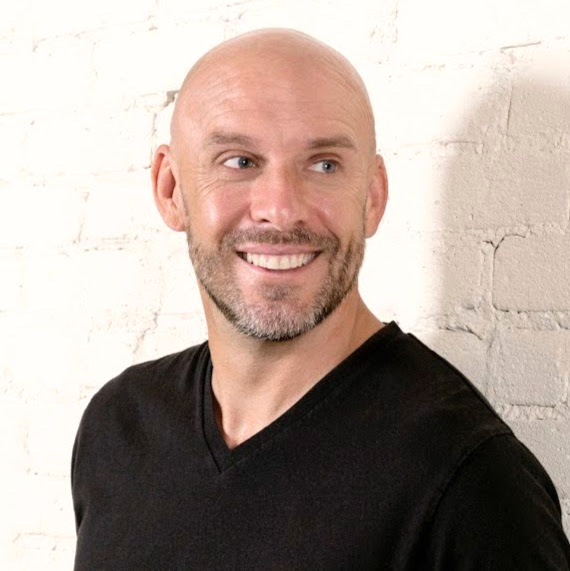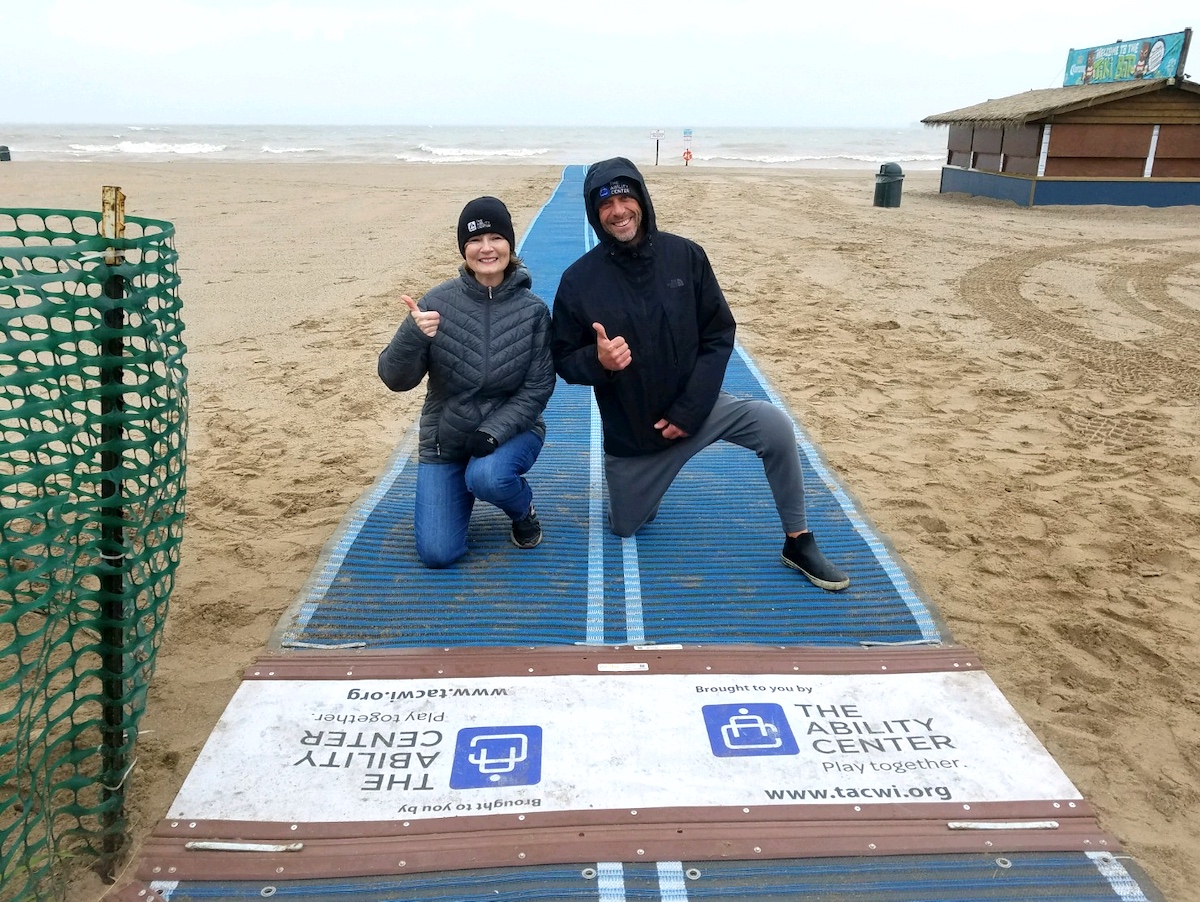For many Milwaukeeans, Bradford Beach is the crown jewel of the city’s lakefront. But for people living with disabilities, the shoreline presented yet another obstacle to enjoying one of the region’s most treasured pleasures. That was until The Ability Center stepped in to make the beach accessible, from the sand to the waterfront.
Today, Bradford Beach is known as the “most accessible beach in the nation,” with extended concrete ramps, seasonal access mats, and free sand wheelchairs rentals to welcome people with all levels of disability. The project was part of The Ability Center’s RampUp program, born out of founder and CEO Damian Buchman’s own frustration with the city’s lack of equitable access to public space.
He recalled the story of one interabled couple who described being forced to stay on the sidewalk, far from the waterline, when they attempted to enjoy a day out in the sun. Sure, there were the occasional accessibility “celebrations” welcoming people living with disabilities into the parks, Buchman said, but these were often relegated to one-day events. Hardly the opportunity to embrace accessibility for the other 364 days of the year.
“We saw that as a problem,” Buchman said. “If the beach is open, it should be open to people of all abilities, all the time. That’s the gap we’re working to fill.”
Roughly one in four American adults live with a disability. While factors that impact function vary, the barriers to participation in everyday activities are numerous. Whether it’s encountering hurdles due to physical limitations, communication, transportation, disability policies, or societal attitudes, all of these challenges can prevent a person from reaching their full potential.
As a person living with a disability himself, Buchman knows firsthand how it can feel to be left on the sidelines. It’s the central reason why he’s made it his life’s mission to create a world where everybody has the equal opportunity to be fit, active, healthy, and to play — together.

Just three days shy of Buchman’s 13th birthday, he was diagnosed with childhood bone cancer, which was then spreading throughout his right leg. Doctors performed a limb salvage and he entered a nine-month round of chemo to fight the disease. The treatments worked, for a while. But after living in remission for seven months, the cancer showed up again, this time in his left leg. Another limb salvage, another round of chemo.
It was a crushing blow to the young star athlete.
“From hip to ankle on both legs, I’m about 75% metal and plastic,” Buchman explained. “I thought I was going to be a pro volleyball player. I walked out [of the hospital] in a new normal. And sometimes the community doesn’t know how to accept your new normal, the community doesn’t know how to engage your new normal, and doesn’t know how to play in your new normal — and that’s not OK.”
Following high school, Buchman returned to the sports world for a time. But after working in a sports facility that catered to abled individuals, he saw a bigger opportunity to use his story to advocate for greater accessibility and to uplift families affected by disability through inclusive recreation. In 2008, he founded The Ability Center (A.F.A.R) to bring his vision to life.
The Ability Center focuses on three pillars: an Adaptive Sports Program, which provides an Open Gym program for people of all abilities; ASAP, which stands for Adaptive Scholastic Athletic Program, which hosts disability awareness assemblies and inclusive physical education classes; and the RampUp program, which is responsible for transforming Bradford Beach into an inclusive leisure destination, and several other accessibility initiatives across the County Parks system, including at Red Arrow and Veteran parks.

Behind the scenes, Buchman is at work on building the “world’s most inclusive park.” While he credits parks that provide “accessibility spaces” for differently abled visitors, he said being forced to play in a limited area reinforces those feelings of being “other.”
“A child with ability shouldn’t feel bad for wanting to go to another area of the park, and vice versa,” he explained. “Or a parent with a disability; if they can’t access the whole park with a wheelchair then they can’t keep their able-bodied child safe. You’re not able to engage in that experience with your kids. I can’t tell you how bad that feels.”
Buchman said he hopes people who hear his story or engage at The Ability Center view disability through a different lens. We are all “temporarily abled bodied” after all, he said.
“One thing I talk about is that all of humanity belongs to one demographic,” Buchman said. “We are all borrowing a body today that will not work the same tomorrow. Whether it’s [through] disease, an accident, or the aging process, it’s inescapable. The things you desire don’t just change because you have a disability. With the right tools, adaptations, and provided the opportunity, people with disabilities really can do anything.”
Subscribe to This Week in Milwaukee Rising:







